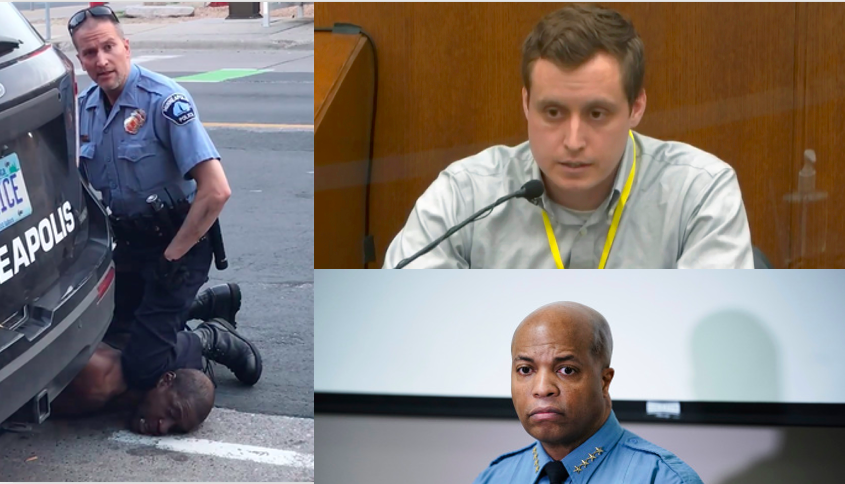Doctor testifies that George Floyd died of asphyxia, police chief says Chauvin did not follow protocol


Testimony continues in the murder trial of Derek Chauvin, the former Minneapolis police officer charged in the death of George Floyd.
May 25 will serve as the one-year anniversary of the death of Floyd, who was pinned to the ground by Chauvin, who held his knee against Floyd’s neck for more than nine minutes.
Chauvin is charged with second-degree murder, third-degree murder and second-degree manslaughter.
During day six of testimony in the trial, Dr. Bradford T. Wankhede Langenfeld, the emergency room doctor who attended to Floyd, said he likely passed away from oxygen deprivation, also known as asphyxia.
Dr.Langenfeld’s testimony is a huge blow to Chauvin’s defense who have tried to push the narrative that Floyd died from drug use and pre-existing health conditions.
Chauvin’s attorney, Eric Nelson, has also built his defense around the belief that Chauvin used a “reasonable” amount of force based on the circumstances.
While cross-examining Minneapolis Police Chief Medaria Arradondo, Chauvin’s Nelson asked whether Arradondo could testify that sometimes officers have to get physical to apprehend a suspect, before adding, “And sometimes that’s not particularly attractive, is it?” to which Arradondo responded that “I would say that use of force is something that most officers would not use.”
Arradondo also testified that Chauvin’s use of force was typically used when “officers are dealing with typically a combative or aggressive person.” He also said that a supervisor should have been present for that type of force. “If it’s used, a supervisor has to respond to the scene,” said Arradondo.
Nelson continued to push his argument for reasonable use of force, asking Arrandondo, “When officers go to a situation… what can be initially very minor, can grow into something major. Agreed?” to which Arrandondo responded “Yes.”
He also disagreed with Chauvin’s method.
“That action is not de-escalation. And when we talk about our framework of the sanctity of life & the principles & values of life, that action goes contrary to what we’re talking.”
MN V. CHAUVIN: “That action is not de-escalation.”
Police Chief Medaria Arradondo discusses the restraint placed on #GeorgeFloyd by #DerekChauvin.
WATCH LIVE – MN v. Derek Chauvin https://t.co/bis122QdFc pic.twitter.com/tfAjBnAKAJ
— Court TV (@CourtTV) April 5, 2021
The biggest takeaway from Arradondo’s testimony was when he revealed that Mr. Floyd posed no threat to Chauvin.
“Once Mr. Floyd had stopped resisting, and certainly once he was in distress and trying to verbalize that, that should have stopped,” he said.
As the trial continues over the next month, it will be left up to the jury to decide Chauvin’s fate.
